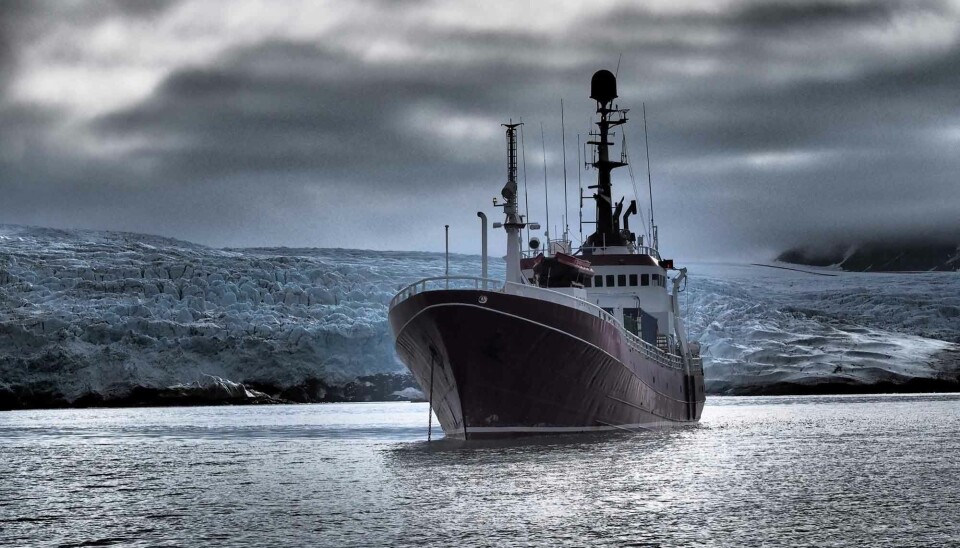
Under false flag: A Moscow company tried to buy a Norwegian former coast guard ship for Arctic sailings
Disguised as businessmen from Dubai, cronies of a Russian adventure company pursued a takeover of the 70-year-old Stålbas for expedition cruises to Novaya Zemlya and Franz Josef Land. The deal was halted last-minute when the Barents Observer started to investigate.
"Our expedition starts in Murmansk where the Stålbas already awaits the expedition participants," the company Morskaya Praktika (Sea Practice) advertises on its website.
"On day 2 we start the voyage towards Franz Josef Land, and get familiar with the ship where we are going to spend the next three weeks," the cruise description reads.
"Welcome on board!" the company underlines.
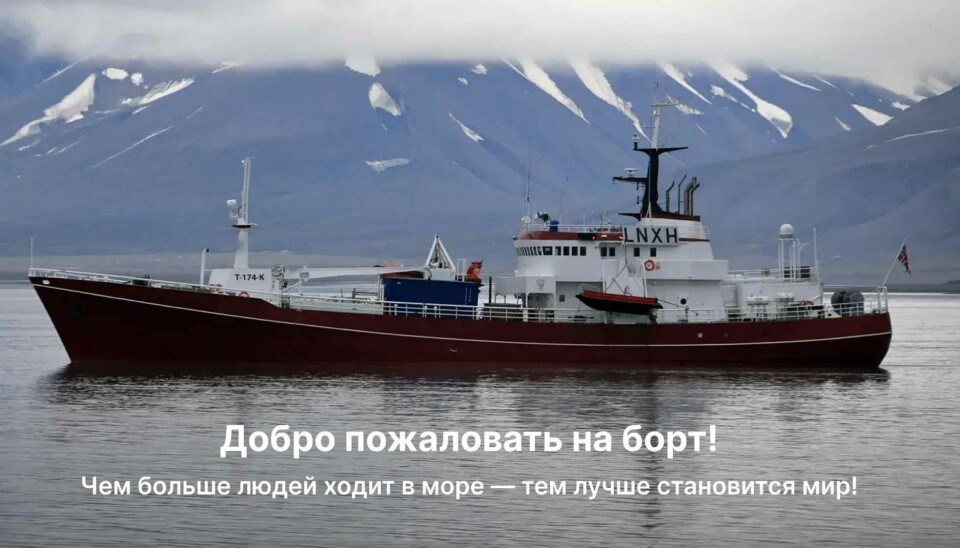
Attached is a detailed brochure that describes the ship and its facilities, including all of the 14 cabins. The best equipped cabins come for a price of 1,8 million rubles (€20,000) per passenger.

The projected route is from Murmansk to eights sites in Franz Josef Land and further to Novaya Zemlya where three sites are to be visited. The latter includes the Moller Bay in the southern part of the archipelago.
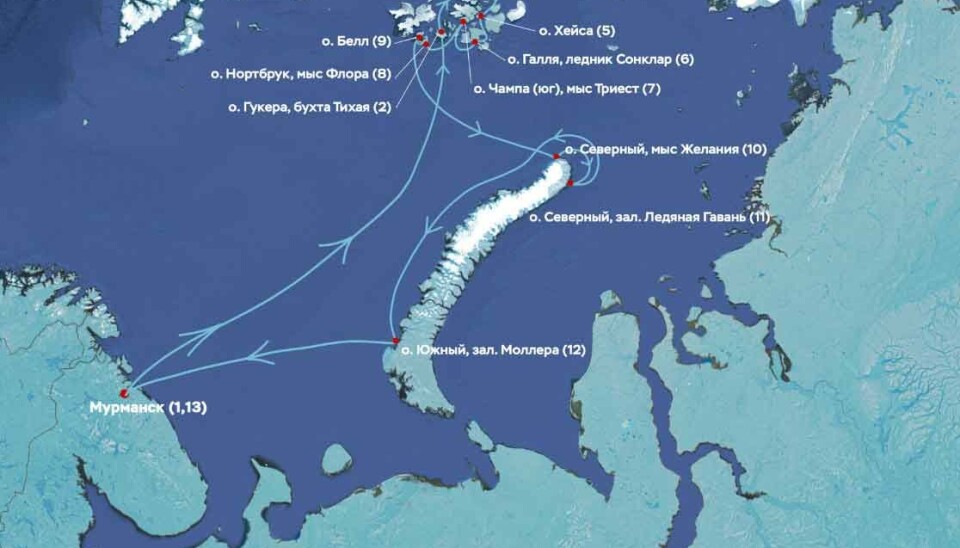
The problem, however, is that everything is based on a scam.
The Barents Observer can reveal that the Morskaya Praktika and its partners have tried, and failed, to buy the Stålbas from the Tromsø-based Norwegian company Barens Offshore.
Pretending to be buyers from the United Arab Emirates, they explained that they intended to use the Stålbas as support ship for sailboats in Greenland.
The deal was almost settled when the Barents Observer took contact with Signe Korneliussen, the Operator Manager at Barens Offshore.
She was not aware of the Russian connection.
"This is completely new information for us," she says. "The buyers have provided false information about themselves."
The interested buyers were based in Dubai and reportedly had no connections to Russia.
"We have been working with contacts from Dubai. They were not on sanctions lists and apparently had no connection to Russia," Korneliussen explains.
Nevertheless, Korneliussen became increasingly suspicious towards the buyers, who presented themselves as Arabs.
Ultimately, the Norwegians put the sales process on halt, and no money was transferred to the Dubai company. The Stålbas is today still moored in Tromsø, northern Norway.
Barens Offshore provides services to offshore seismic survey operations and marine research in the Arctic. It has long experiences from operations in harsh Arctic environments, including in the Barents Sea, the Kara Sea, as well as around Svalbard and Greenland.
The Tromsø-based company has owned and operated the 70-year-old Stålbas since 2010. The ship was originally built as a fishing vessel, but later operated for the Norwegian Coast Guard.
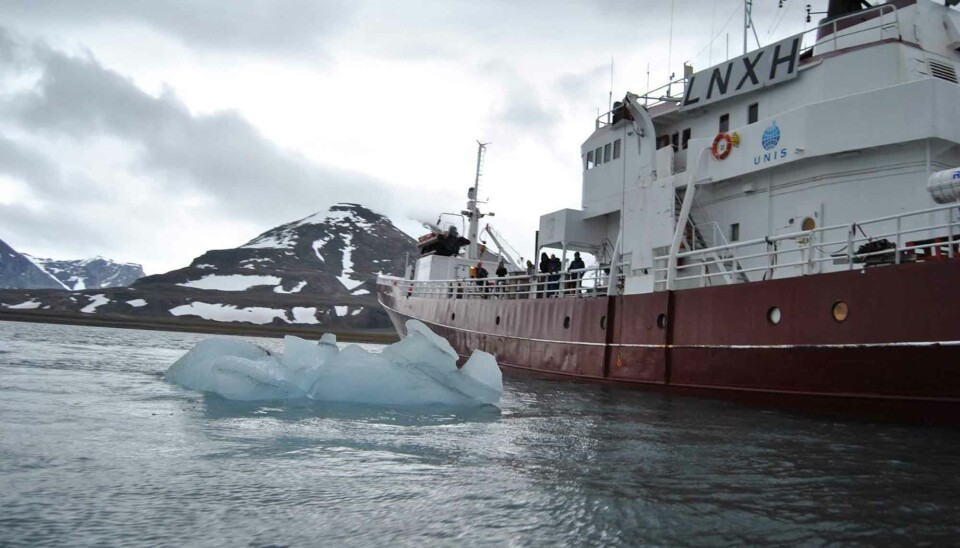
It was shipbrokers at the Atlantic Shipping that were responsible for the selling of the Stålbas.
Broker Fredrik Wernhult says to the Barents Observer that the Dubai-based company deliberately misled the sellers.
"We have our standards. And we are not allowed to sell any ships to Russians because of the sanctions," he says.
"We have today cancelled the deal," he explains.
Wernhult explains that his company has not previously experienced any similar approach from buyers.
"But we know that this problem exists. And there are many Russians in Dubai," he adds.
The Barents Observer has reached out to Morskaya Praktika for a comment to this article, but has not gotten a response.
The Russian company is organising expedition cruises to destinations in both the Arctic and Antarctic. An expedition with a ship rented by Morskaya Praktika will this week make port call in Barentsburg, the Russian town in Norway's Svalbard archipelago.
The cruise is organised in cooperation with Arktikugol, the Russian state company based in Barentsburg.
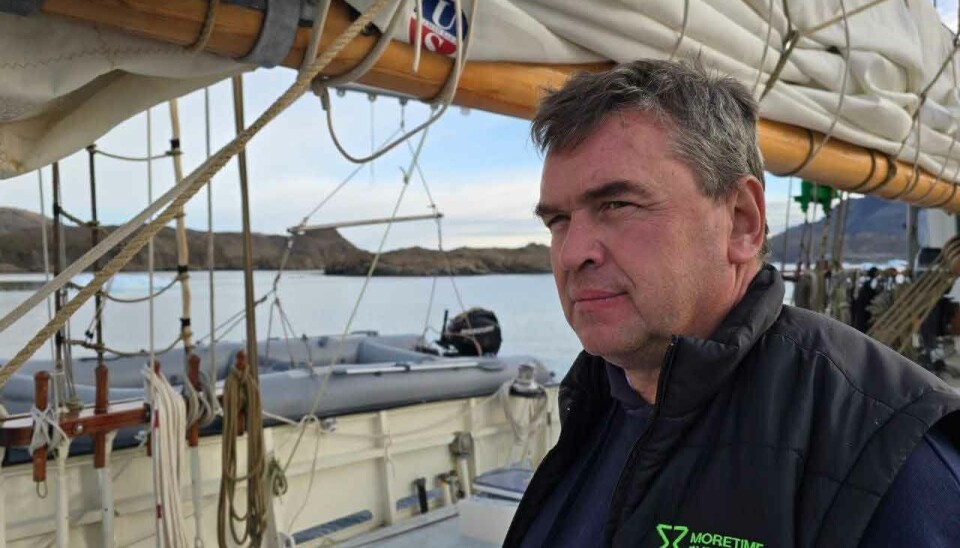
Morskaya Praktika is 100 percent owned by Konstantin Popov, a man with more than 30 years of experiences from sailing expeditions. He is well connected and cooperates with several retired Russian Navy captains. Among them is Lev Rodshtein, who previously commanded a nuclear submarine, and Andrei Khalevin, who used to command missile cruiser Admiral Nakhimov.

The international community imposed massive sanctions on Russia following the start of the full-scale war against Ukraine. Hundreds of vessels have been included in the sanctions lists. Russian companies have subsequently established shady schemes for circumnavigation of the restrictions. That includes the development of so-called 'shadow fleets.'













